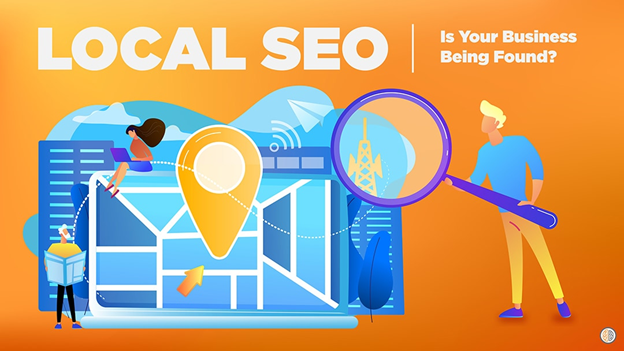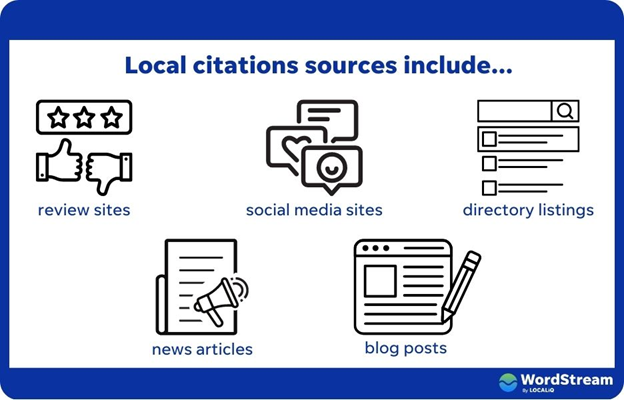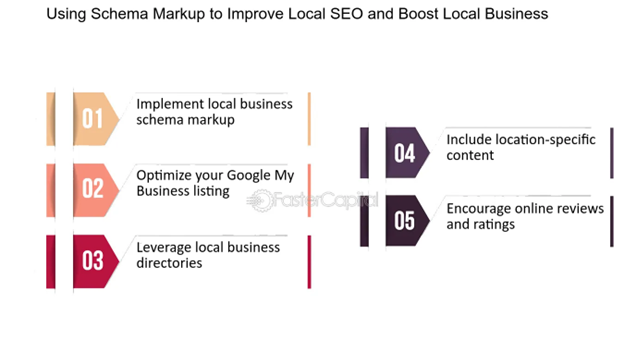Content
SHARE

In today’s highly competitive digital landscape, having a strong online presence is crucial for businesses. And when it comes to attracting local customers, nothing is more essential than local SEO. In this definitive guide, we will delve into the world of local SEO and explore the various strategies you can implement to improve your local rankings. So, let’s get started!
Understanding the Importance of Local SEO
Local SEO, short for Search Engine Optimisation, is the process of optimising your online presence to attract customers from a specific geographical area. It involves implementing various techniques and strategies to ensure your business appears at the top of search engine results pages (SERPs) when people search for products or services in your locality. But what exactly is local SEO, and why does it matter? Let’s delve deeper into this topic to understand its significance.
What is Local SEO and Why Does It Matter?
Local SEO focuses on reaching potential customers in your specific area, making it an essential marketing tool for businesses that operate on a local scale. By targeting customers within your locality, you can effectively connect with individuals more likely to convert into paying customers. Imagine you own a small bakery in a quaint town. Local SEO can help you attract customers who are searching for “bakery near me” or “freshly baked goods in [your town].”
By optimising your website and online presence for local searches, you can ensure that your bakery appears at the top of the search results when people in your area are looking for baked treats.Local SEO not only increases your visibility but also enhances your credibility among local customers. When your business consistently appears at the top of local search results, it establishes trust and familiarity with potential customers, making them more likely to choose your products or services over your competitors.Moreover, local SEO can drive more targeted traffic to your website. When your business shows up in local search results, the people who click on your website are more likely to be genuinely interested in what you have to offer. This targeted traffic has a higher chance of converting into actual customers, leading to increased conversions and revenue.
The Impact of Local SEO on Your Business
The benefits of investing in local SEO are immense. You can enhance brand awareness and visibility within your community by improving your local rankings. When people consistently see your business at the top of local search results, it reinforces your brand presence and makes you a recognisable name in the area.For businesses with physical stores, local SEO can significantly increase foot traffic. When potential customers find your business easily through local searches, they are more likely to visit your store in person. This not only boosts your sales but also allows you to create a personal connection with your customers, leading to customer loyalty and repeat business.
Furthermore, local SEO gives you a competitive edge over your competitors. When you optimise your online presence for local searches, you are more likely to outrank your competitors and attract customers who are specifically looking for businesses in your area. This advantage can help you dominate the local market and grow your business exponentially. Local SEO is a powerful marketing tool that can significantly impact your business’s success. By targeting customers in your specific area, you can increase your visibility, drive targeted traffic, and establish trust among local customers. So, if you want to take your business to new heights, investing in local SEO is a wise decision.
The Fundamentals of Local SEO
To understand how to improve your local rankings, it’s crucial to grasp the fundamentals of local SEO. Let’s explore two key aspects: how search engines determine local rankings and the role of Google My Business.
How Search Engines Determine Local Rankings
Search engines like Google use complex algorithms to calculate local rankings. They take into account various factors such as relevance, distance, and prominence to deliver the most accurate results to users. By optimising your website and online presence according to these factors, you can improve your chances of ranking higher in local searches.Relevance plays a significant role in local rankings. Search engines analyse the content on your website and determine how well it matches the search query. For example, if someone searches for “best coffee shops in London,” search engines will look for websites that mention coffee shops in London and rank them accordingly.
Distance is another crucial factor. When users search for local businesses, search engines consider their location and show results that are geographically close to them. This means that if you have a physical store, it’s essential to optimise your website for local searches in your area. Prominence refers to how well-known and reputable your business is. Search engines take into account factors such as online reviews, ratings, and mentions on other websites. The more positive reviews and mentions your business has, the higher your prominence score will be, leading to better local rankings.
The Role of Google My Business in Local SEO
Google My Business (GMB) is a free tool provided by Google that allows businesses to manage their online presence. By claiming and optimising your GMB listing, you can provide essential information such as your address, phone number, website, and business hours. This not only helps search engines understand your business better but also enables potential customers to find and connect with you easily.
Optimising your GMB listing involves providing accurate and up-to-date information about your business. This includes adding high-quality photos of your products or services, writing a compelling business description, and selecting relevant categories that accurately represent your business.
One of the key benefits of using GMB is that it allows you to interact with your customers directly. You can respond to reviews, answer questions, and provide updates about your business. This engagement not only improves your online reputation but also signals to search engines that you are an active and trustworthy business.
Another important feature of GMB is the ability to post updates and offers. You can share news, promotions, and events directly on your GMB listing, which can help attract more customers and increase your visibility in local searches. Understanding the fundamentals of local SEO is essential for improving your local rankings. By optimising your website according to factors like relevance, distance, and prominence, and leveraging the power of Google My Business, you can increase your chances of being found by potential customers in your local area.
OptimisingYour Website for Local Search
Now that you grasp the fundamentals, let’s explore how to optimise your website to improve your local search visibility. We’ll focus on two crucial aspects: the importance of on-page SEO and the role of content.
The Importance of On-Page SEO
On-page SEO involves optimising various elements on your website to make it more search engine friendly. This includes optimising your meta tags, headers, URLs, and incorporating relevant keywords. By ensuring your website is technically optimised, you’re sending out the right signals to search engines and increasing your chances of ranking higher in local searches.
The Role of Content in Local SEO
Creating high-quality, informative, and engaging content is vital for local SEO. By generating locally-focused content such as blog posts, articles, and guides, you can position yourself as an authority in your local market. This not only attracts more visitors to your website but also encourages them to stay longer, increase their dwell time, and improve your overall rankings.
Building a Strong Local SEO Strategy
Now that you’ve optimised your website, it’s time to build a robust local SEO strategy. We’ll explore two critical components: the importance of local citations and online directories, and the role of reviews and ratings.
The Importance of Local Citations and Online Directories
Local citations are online mentions of your business’ name, address, and phone number. They play a vital role in local SEO, as search engines use them to validate your business information and determine your relevance in local searches. By ensuring consistent and accurate citations across various online directories, you can improve your local rankings and make it easier for potential customers to find you.
The Role of Reviews and Ratings in Local SEO
Customer reviews and ratings have a significant impact on local SEO. Positive reviews not only increase your credibility and trustworthiness but also reinforce your online presence. Encourage your satisfied customers to leave reviews on platforms like Google, Yelp, and Facebook. By responding to reviews, addressing any concerns, and providing excellent customer service, you can enhance your reputation, attract more customers, and improve your local rankings.
Advanced Local SEO Techniques
As you become more familiar with local SEO, it’s time to explore advanced techniques that can give you an extra edge in the local market. Let’s dive into the power of schema markup and the role of social media in local SEO.
Utilising Schema Markup for Local SEO
Schema markup is code that you add to your website to provide search engines with more detailed information about your business. By implementing schema markup specific to your location, such as your address, phone number, and business hours, you can improve your chances of appearing in local search results. This powerful technique can significantly enhance your local SEO efforts.
The Role of Social Media in Local SEO
Social media should not be overlooked when it comes to local SEO. By actively engaging with your audience on platforms like Facebook, Instagram, and Twitter, you can boost your online presence, increase brand awareness, and generate valuable local leads. Share updates about your business, showcase your products or services, and encourage your followers to interact with your posts. This social proof can have a substantial impact on your local SEO and help you climb up the rankings ladder.
Now that you have a comprehensive understanding of local SEO and the strategies you can implement to improve your local rankings, it’s time to take action. Remember, local SEO is an ongoing process, so stay consistent, monitor your progress, and adapt your strategies as needed. By investing time and effort into local SEO, you’re setting your business up for success in the competitive local market.
Frequently Asked Questions About SEO
What is SEO and How Does it Work?
SEO means Search Engine Optimisation and is the process used to optimise a website’s technical configuration, content relevance and link popularity so its pages can become easily findable, more relevant and popular towards user search queries, and as a consequence, search engines rank them better.
Is SEO Still Relevant in 2024?
Yes, SEO is still relevant in 2024, and it will be for the foreseeable future. That’s because SEO is what helps search engines crawl and categorise your website so that it can better rank web pages when users type in a search query. Search engines like Google aim to help users find answers to their questions.
How Can I Perform Local SEO for Any Website?
- Optimise Your Homepage.
- Optimise Your MetaData.
- Create a Page for Every Product, Service and Location.
- Use Local Business, Organisation, Product & Service Schema.
- Claim Your Google My Business Page.
What are the Ranking Factors for Local SEO?
- Primary Google Business Profile category.
- Keywords in your Google Business Profile title/name
- Proximity of address to the point of search.
- Physical address in the city of search.
- Removal of spam listings through spam preventative mechanisms.
Is SEO Important for Your Business?
Yes, because the ultimate goal of SEO for business is to generate organic traffic—searchers clicking through to your website from a search engine results page (SERP).
















